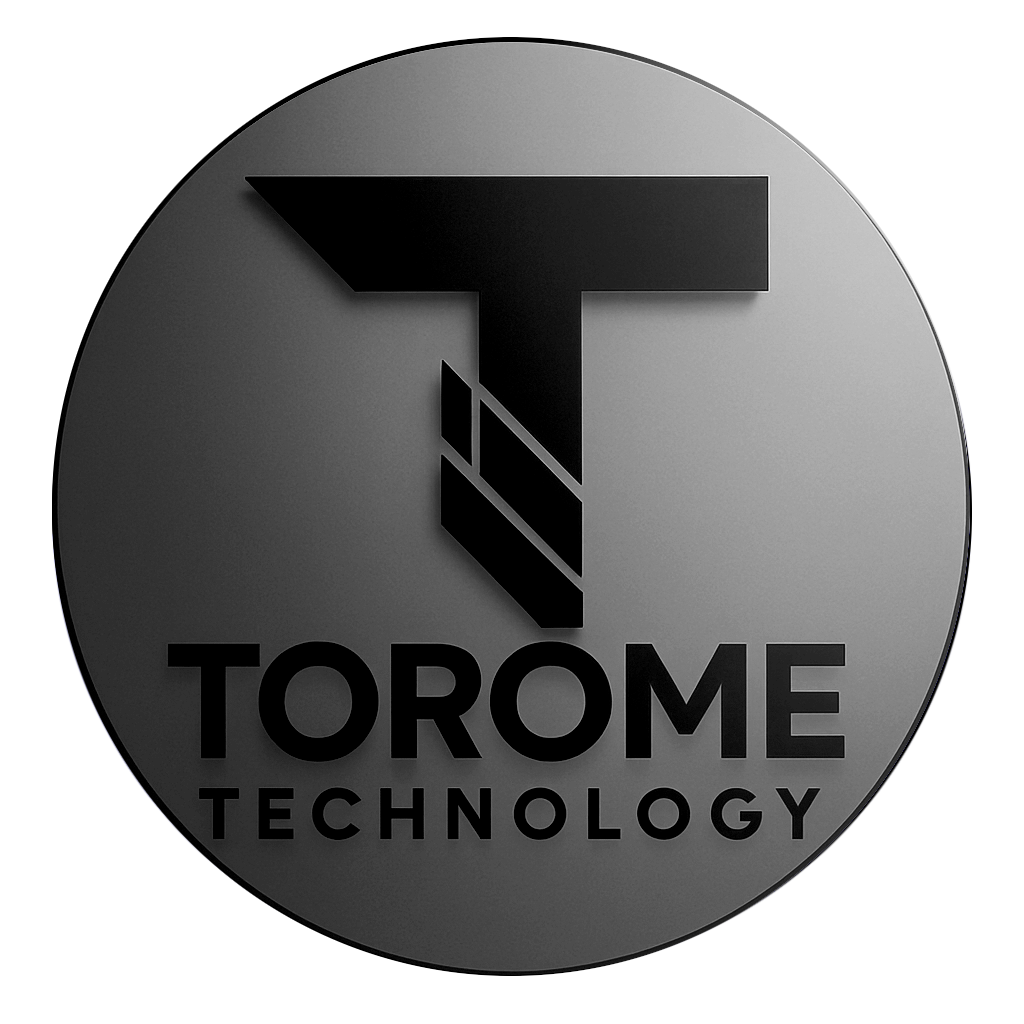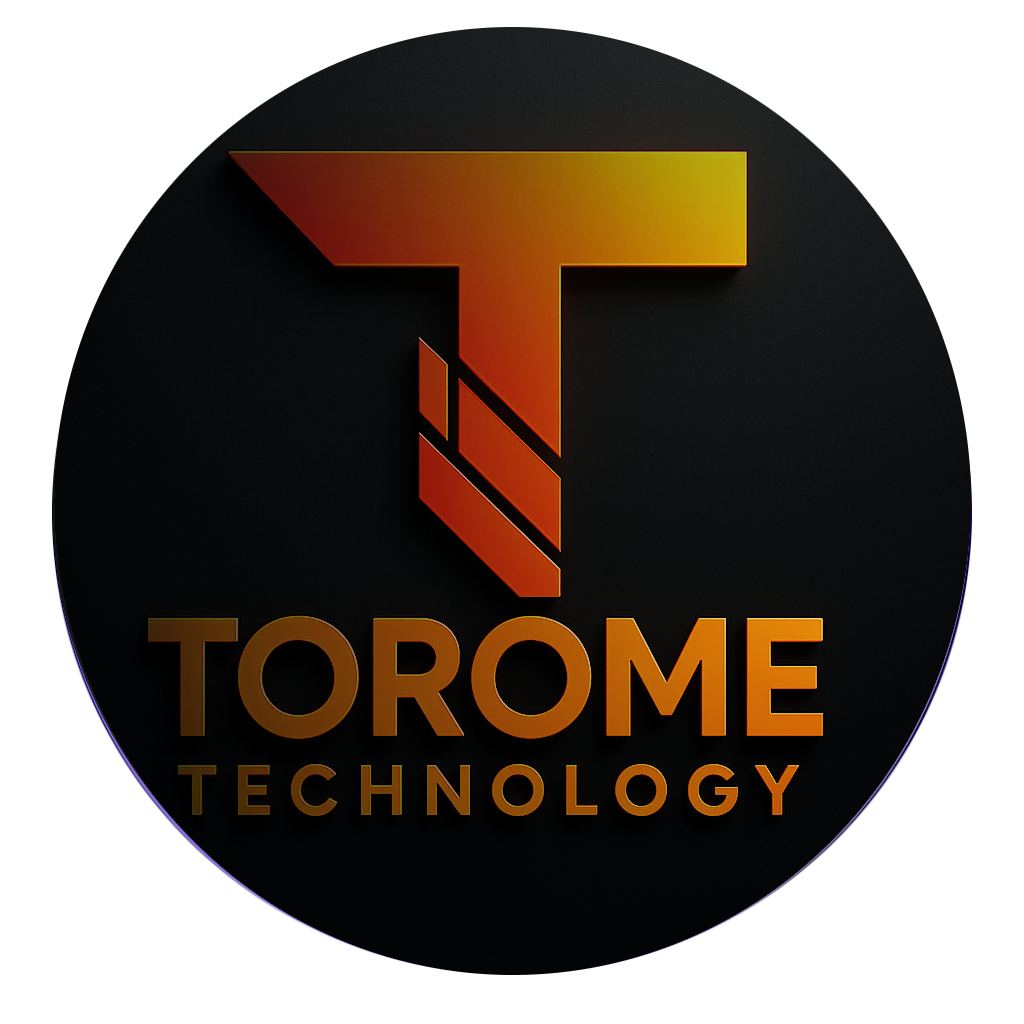Don't waste time thinking about website design if you have a business plan or ideas you think should be running on the web. Concentrate on your core deliverables and let ToromeTech implement the perfect interface for your enterprise. We provide a comprehensive range of bespoke IT services including web design, online shopping carts and payment portals, content management systems(CMS), database design apps, corporate branding and promotional campaigns.
It is not the technology per se, but the intelligent application of technology that helps to answer business questions. We should not become too dazzled by digitalization. It is not an answer in itself but an enabler. And like all enablers, it is only as smart as the people using it.
At Torometech, we are passionate about our work in web development, graphic design, and coding. If you have an idea or business venture that you've been contemplating for a long time, look no further. Come to us, and we will help turn your vision into reality.
We specialize in creating impressive and dynamic web content, tailored to your specific industry. You can trust that your unique offerings will be well-supported by the interfaces we design. We achieve this through thorough collaboration throughout the entire design cycle.
We are conversant in all digital media across the online, broadcast, and video mediums. We are particularly focused on utilizing new technologies to create a space where they can all merge. Thus, providing a beautiful, simple, and intuitive experience. Your website should be a marketing asset that enables you to showcase your products or services, not an engineering challenge in thermodynamics or fluid mechanics.
We like to describe your website as a digital home for your business. It’s where you can flex your expertise and tell your story through imagery, video, and written text content. Though the aforementioned are the salient attributes, you do not have to be an expert in any. You concentrate on your core business deliverables, and we will cater to the rest.
We believe that technology should be intuitive and straightforward, allowing us to accomplish tasks with less friction and on a much larger scale. We desire AI-driven immersive experiences that understand us well, but not at the cost of our security and comfort.
ReadMore
WHAT WE DO
Navigate the Future of Digital: Harness Generative AI with Torome TechnologyThe digital landscape is evolving at an unprecedented pace. Since its initial debut with models like ChatGPT, the advent of Generative AI marks a fundamental shift in how we approach content creation, web design, and digital engagement. At Torome Technology, we’ve been at the forefront of this evolution, not just observing but actively exploring and integrating Generative AI into powerful solutions for our clients. We understand the urgency to stay competitive and innovative. We know you seek efficient workflows, scalable content solutions, and innovative designs that push the boundaries.
Streamline Content Creation
Accelerate the production of high-quality, engaging web content, from blog posts and articles to compelling marketing copy, leveraging AI-powered tools for drafting, editing, and optimization. It helps us explore innovative design concepts and layouts generated by AI algorithms, enabling rapid prototyping and pushing creative boundaries while maintaining brand consistency.
Optimize User Experiences
Leverage AI's analytical capabilities to tailor user experiences, anticipate customer needs, and enhance engagement and conversion. Failure to utilize the analytical tools offered by Gen AI results in significant missed opportunities and competitive disadvantage.
Unlock New Efficiencies
It enables us to automate repetitive tasks, allowing our teams to focus on strategic initiatives and complex problem-solving. We advise our clients about the implications of Generative AI that they are profound and far-reaching. We invite you to explore the intellectual and creative possibilities alongside us.
Content Generation & Analysis
We leverage AI to generate and analyze large volumes of data, supporting research projects, scholarly publications, and educational materials.
Novel Design Explorations
We are exploring the artistic potential of AI-driven design, pushing the boundaries of visual communication and creative expression. Recently, we published a work that utilized Gen AI to design the cover of a newly published novel and the page's entire content with a video to boot. All done with elaborate prompt engineering of course. - Here
Ethical & Societal Impact
We engage with Gen AI in critical discussions surrounding the ethical considerations of AI and its impact on various domains of study. It helps support the development of new educational materials and courses that incorporate the principles of Generative AI, equipping the next generation with relevant skills. You can benefit from our hands-on practical expertise.
The Polemic
The Shifting Sands Of Expertise
The relentless integration of Artificial Intelligence into the fabric of our professional and personal lives is no longer a futuristic prediction; it is our present reality. AI's capabilities are expanding exponentially, from sophisticated data analysis and automated code generation to content creation and complex problem-solving. While promising unprecedented efficiency and innovation, this pervasive technological shift inevitably fuels apprehension across industries. For professionals, particularly within IT consulting and academia – fields built upon deep knowledge and specialized skills – this core question resonates profoundly: How does our established understanding of value and expertise hold up in an AI-augmented world?
The traditional maxim, ingrained through decades of professional development and academic rigor, has always been to strive for mastery – to become the virtuoso in one's chosen domain. Excellence, deep specialization, and becoming the definitive expert were the pathways to recognition and reward. However, this excerpt strikes a potentially discordant, yet increasingly relevant, chord: Mastery appears to yield diminishing returns in this AI-driven world.
It's no longer essential to be the best at anything in particular. Because now, it's not about doing the work; it's about orchestrating it. AI can play every instrument - you just need to be the conductor of the orchestra.
For generations, the pursuit of deep mastery has been the cornerstone of professional advancement. In IT, this meant becoming the go-to expert in a specific programming language, database system, or network architecture. In academia, it translates to becoming the leading authority on a niche sub-discipline, mastering intricate theoretical frameworks or experimental techniques. This dedication yielded significant rewards: efficiency, innovation within the niche, and irrefutable authority.
However, the rise of sophisticated AI tools introduces a complex dynamic that forces us to re-evaluate the universal applicability of this model. AI, particularly generative AI and advanced machine learning models, can now perform tasks that previously required years of dedicated human training, often with remarkable speed and scalability.
ReadMore
OUR BLOG
The Ephemeral Scaffolding or Enduring Infrastructure? LLMs, Their Wrappers, and the Specter of a Dotcom Déjà Vu
The digital epoch is characterized by periodic waves of transformative technology, each creating its fervent ecosystem of innovation, investment, and, often, intense speculation. The current surge surrounding Large Language Models (LLMs) is undeniably one such wave.
Bridging the Expectation Gap: Understanding and Leveraging Generative AI in the Enterprise
The rapid ascent of Generative Artificial Intelligence (Gen AI) has ignited considerable excitement across the business landscape. Promises of enhanced productivity, efficiency, and automated content creation, and novel problem-solving capabilities are abundant. However, as a recent anecdote illustrates,...
What qualities are essential for success in this rapidly evolving AI landscape?
In today's rapidly evolving landscape, the once-exclusive domain of human intelligence—knowledge—has become a readily available commodity, seamlessly accessible through AI at a moment’s notice. The traditional pillars of expertise, memory, and information synthesis are now woven into digital assistants, generative algorithms,
The Shifting Sands of Expertise
The relentless integration of Artificial Intelligence into the fabric of our professional and personal lives is no longer a futuristic prediction; it is our present reality. AI's capabilities are expanding exponentially, from sophisticated data analysis and automated code generation to content creation and complex problem-solving. While promising unprecedented efficiency and innovation, this pervasive technological shift inevitably fuels apprehension across industries
How ChatGPT-4o with Image Creation is Transforming the Graphic Design Landscape Forever
The integration of generative AI into the creative industry has been a slow burn over the last decade. However, the release of OpenAI's ChatGPT-4o, especially with its robust image generation capabilities, has ignited a paradigm shift that few could have anticipated.
The Generative AI Revolution: Will Knowledge for All Upend the Social Order?
Remember the printing press? It’s almost quaint now, compared to what’s happening with Artificial Intelligence. But hold that thought – the printing press is *exactly* the historical parallel we need to understand the potential (and the pitfalls) of this new AI world we’re rushing headlong into.







